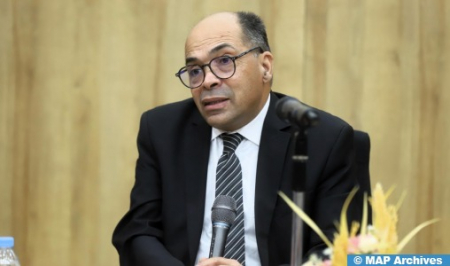Morocco’s Plea before ICJ ‘Rehabilitates’ Arab Action in Favor of Palestine – Academic
In a compelling plea before the International Court of Justice (ICJ), Morocco has underscored the legal ramifications of Israeli policies and practices in the occupied Palestinian territories. Driss Lagrini, a professor of international relations at the Faculty of Legal, Economic, and Social Sciences in Marrakech, emphasized that Morocco’s advocacy “rehabilitates the common Arab action in favor of defending the rights of the Palestinian people.” Lagrini, also the director of the Laboratory of Constitutional Studies and Analysis of Crises and Policies (LECACP), lauded the initiative as a positive step that strengthens Arab unity both within the Arab League and among Islamic countries. He highlighted the potential of this collective action to play a crucial role in championing the legitimate rights of the Palestinian people, particularly before the ICJ, the principal judicial organ of the United Nations. The professor emphasized that Morocco’s stance aligns with its unwavering convictions on this just cause. He pointed out that the country consistently seizes every opportunity to advocate for the Palestinian cause, not only regionally and internationally but also within the framework of its diplomatic efforts. The legal plea put forth by Morocco is anchored in fundamentals related to the two-state solution, seen as the only viable path to prevent further deterioration of the situation. The plea emphasizes the special status of Al Quds (Jerusalem) as a space for the coexistence of religions and strongly condemns the illegality of Israeli settlements in the occupied Palestinian territories. Morocco’s position reflects its commitment to the Palestinian cause, with a particular emphasis on the ongoing proceedings before the ICJ. HM King Mohammed VI, serving as the President of the Al Quds Committee, has played a pivotal role in championing the cause within the framework of the ICJ’s advisory opinion on the legal consequences arising from Israeli policies and practices in the occupied Palestinian territories, including East Jerusalem.

